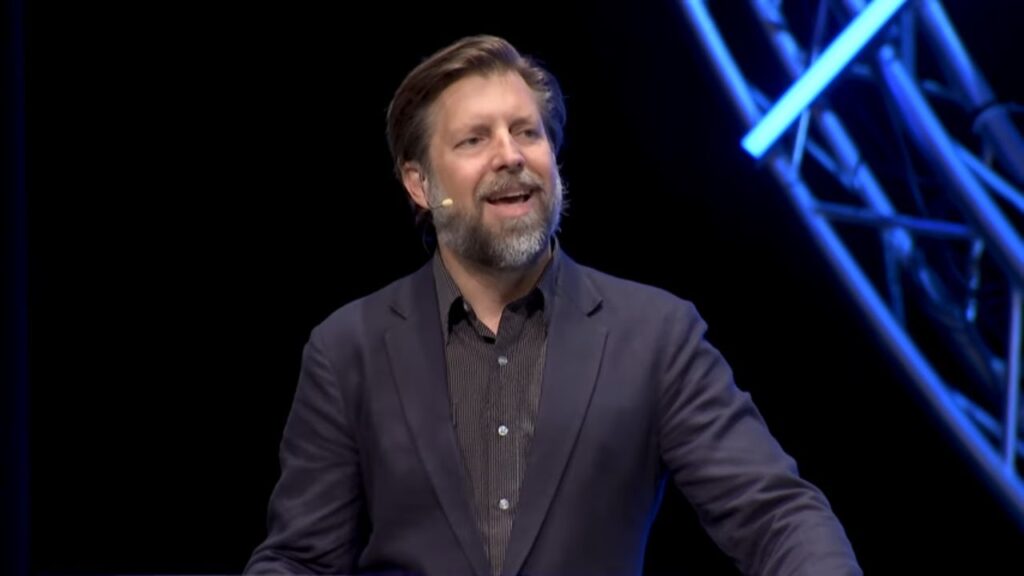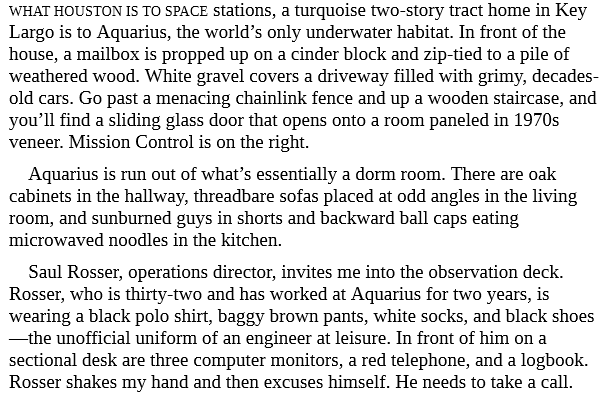


Perhaps like all trips, what began as a distraction ends in discovery. but with flippers, and to the bottom of the ocean. * Dolphins, Whales and all cetaceans have their own language - it's indecipherable to us, but may be based on sonar 3d projections - they may send eachother 3d images when they talk * The ocean is beyond unexplored - he likens our knowledge of this earth to be like seeing a single finger of a human instead of the whole thing * Deep diving is incredibly dangerous, and not for everyone The deeper we go, the slower our hearts beat - and many other things. * Human biology has a specific response to diving - one found in most all mammals. Like Junger, Nestor takes a specific, danger-filled theme - and then explores human and biological questions through that. I consider James Nestor more of a Sebastian Junger than a Carl Sagan, Ann Druyan or Yuval Noah Harari.

This was billed as the next Cosmos, and though it doesn't have the expansive themes of this work, or my other non-fiction book of the year, Sapiens: A Brief History of Humankind - it's great. Most illuminating of all, Nestor unlocks his own freediving skills as he communes with the pioneers who are expanding our definition of what is possible in the natural world, and in ourselves. As strange as these phenomena are, they are reflections of our own species’ remarkable, and often hidden, potential-including echolocation, directional sense, and the profound physiological changes we undergo when underwater. He finds whales that communicate with other whales hundreds of miles away, sharks that swim in unerringly straight lines through pitch-black waters, and seals who dive to depths below 2,400 feet for up to eighty minutes-deeper and longer than scientists ever thought possible. Along the way, he takes us from the surface to the Atlantic’s greatest depths, some 28,000 feet below sea level. In Deep, Nestor embeds with a gang of extreme athletes and renegade researchers who are transforming not only our knowledge of the planet and its creatures, but also our understanding of the human body and mind. This man was a freediver, and his amphibious abilities inspired Nestor to seek out the secrets of this little-known discipline. While on assignment in Greece, journalist James Nestor witnessed something that confounded him: a man diving 300 feet below the ocean’s surface on a single breath of air and returning four minutes later, unharmed and smiling.


 0 kommentar(er)
0 kommentar(er)
